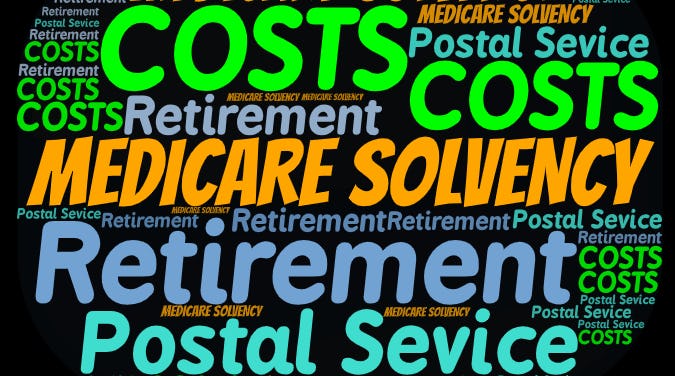"A colleague from Kyiv, Ukraine, whom I’ll call N.M., sent me brief essays her students wrote on what they would do when the war ends. As both a scholar and a novelist, I knew that these voices, which expressed a beautifully straightforward and pure yearning for the simplest things that are lost in war, needed to be heard by the world" ... Read more

Recent Posts on Kudos 365
"Is there a danger - through the current lack of action by the Security Council - that it could be damaged by what’s going on in Ukraine?"....... Read more
The electrical chatter of our working memories reflects our uncertainty about their contents. Neuroscientific studies suggest that when we call up a memory to use it, our uncertainty about its accuracy is part of the recollection. Read more
Albert Alexander was dying. World War II was raging, and this police officer of the county of Oxford, England, had developed a severe case of sepsis after a cut on his face became badly infected. His blood was now teeming with deadly bacteria....Read more
Russia's disinformation campaign hides the truth and offers false news narratives as it closes access to independent news sources and shuts down public demonstrations and opposition to the war... Read more
In 1997 California use to provide 90% of the avocados consumed in the US. Today, as the result of changes implemented as part of NAFTA, Mexico provides 80% of a much larger avocado consumption in the U.S. The avocado trade high prices and high profit margins have attracted the interest of the Mexicans crime cartels. A major disruption of this market could have a major negative effect on the American consumer as briefly shown during the U.S. Department of Agriculture ban of avocado imports from Mexico on February this year Read more
Cambridge University scientists James D. Watson and Francis Crick announced on February 28.1953 that they had determined the double-helix structure of DNA (short for deoxyribonucleic acid). DNA was discovered in 1869 but its significant genetic inheritance role was not demonstrated until 1943. Many other Scientists were working on figuring out the structure of DNA. Read more
A $6 million project at Leque Island is already seeing “overwhelmingly positive” signs of a healthier ecosystem ... Read more
A Comment by Loy

So happy to watch this and learn of the positive results! - hope the fish and wildlife continue to thrive in the estuary.
A congressional effort to fix the nation’s deteriorating mail service may come at the expense of an even bigger and more complicated problem: Medicare solvency.
The Postal Service Reform Act of 2022 would help shore up post office finances by ending the unusual and onerous legal requirement to fund 75 years of retirement health benefits in advance. In return, it would require future Postal Service retirees to enroll in Medicare.
According to the Congressional Budget Office, the move could save the postal retirement and health programs about $5.6 billion through 2031 while adding $5.5 billion in costs to Medicare during that span, and probably much more in later years.
Considering the massive size of Medicare — it spent $926 billion in 2020 — the costs don’t amount to much. That small financial impact, and the ongoing immediate crises with mail delivery, probably account for the strong bipartisan support the postal bill has received in Congress, with 120 Republicans joining Democrats to pass the bill in the House on Feb. 8.
But late in the process, some lawmakers are raising alarms over the move, arguing that maybe Congress should look more carefully at the financial impact to Medicare’s trust fund, which is expected to run dry in 2026.
“This bill simply shifts risk to Medicare recipients by adding billions of new costs to Medicare,” Sen. Rick Scott (R-Fla.) said Feb. 14 in blocking requests on the Senate floor to expedite passage of the bill. Scott’s objection delayed consideration of the bill until early March, after the Senate returns from its Presidents Day break.
Currently, Postal Service employees are covered by plans offered in the Federal Employees Health Benefits program. When they retire they have several choices for health care, including staying in their original plan or switching to Medicare as their primary coverage and having an FEHB plan serve as supplementary coverage. About 20% of postal retirees do not sign up for Medicare, preferring their current federal plan. Under this legislation, they would have to switch to Medicare, but they would keep a new Postal Service version of the FEHB plan as secondary coverage.
Since the change wouldn’t fully take effect until 2025, and the Congressional Budget Office’s cost estimate doesn’t capture a full decade, Scott wants to know the price tag for the next 10- and 20-year periods, as well as the specific impacts on the various components of Medicare, such as premiums for Medicare’s Part D drug plan and the Part B program, which covers a variety of outpatient services.
The overall cost is likely to be much more significant than the shorter-term analysis found, said Robert Moffit, a senior fellow at the conservative Heritage Foundation, who has also raised concerns.
“There is a total cost that’s being ignored,” Moffit said. “You basically have a situation where you have unfunded liabilities in the Postal Service Health Benefits Program, retiree benefits, that amount to about $75 billion.”
That projected cost doesn’t vanish. It falls on Medicare, though the exact impact is unclear. Moffit agreed with Scott that Congress should be looking at longer-term implications, including effects on premiums and the costs borne by taxpayers and beneficiaries.
“We ought to step back, take a deep breath, and look at what we’re doing here,” Moffit said.
Postal Service unions are not worried about the change, however, with all of them supporting the switch, noted Democrats who responded to Scott earlier this month.
Senate Majority Leader Chuck Schumer argued that the bill would save the government money overall, and that moving postal retirees into Medicare would ensure that they receive benefits they’ve paid for but were not using.
For Schumer and most other lawmakers, the comparatively small impact on Medicare is simply not as pressing as getting the mail delivered on time.
“We will pass this bill because America needs it. Rural people need it. Senior citizens need it. Veterans need it — 80% of the veterans’ prescriptions are sent through the mail,” Schumer said. “Nobody should be standing in the way of this bill.”
Scott is now among a minority objecting to the latest effort and pointing to Medicare.
Others who remain concerned about Medicare’s poor finances also thought fixing the problems with postal delivery was worth the cost to Medicare.
“I would let Congress have a small win here and, really, this is not just a small win,” said Mary Johnson, a Social Security and Medicare policy analyst at the Senior Citizens League advocacy group.
She said the failures of the mail system also have health consequences, with payments for insurance and shipments of prescriptions going missing, which has happened to her.
The shift to Medicare envisioned in the legislation could add to the sense of urgency — all those retired postal workers would be joining Medicare just in time for a solvency crisis if Congress drags its feet. “It’s inaction in Congress that would cause that,” Johnson said.
Johnson noted it will be difficult to reach a bipartisan consensus on something as momentous as Medicare reform. “You’re going to have to pass something, and it depends on who’s the majority. It may not be very pretty when it happens.”
"How are you feeling right now? Your brain has many jobs, but its most important might be to answer this question"........Read more
A good read for those of us wondering how the U.S. Supply chain failed us and why available inventory is so sporadic. "Rampant outsourcing, financialization, monopolization, deregulation, and just-in-time logistics are the culprits". Read more
"Coffee, wine, and wheat varieties are among the foods we could lose forever."... Read more








.jpg?fit=crop&w=280&h=280&q=93)




.jpg?fit=crop&w=200&h=200&crop=faces)











